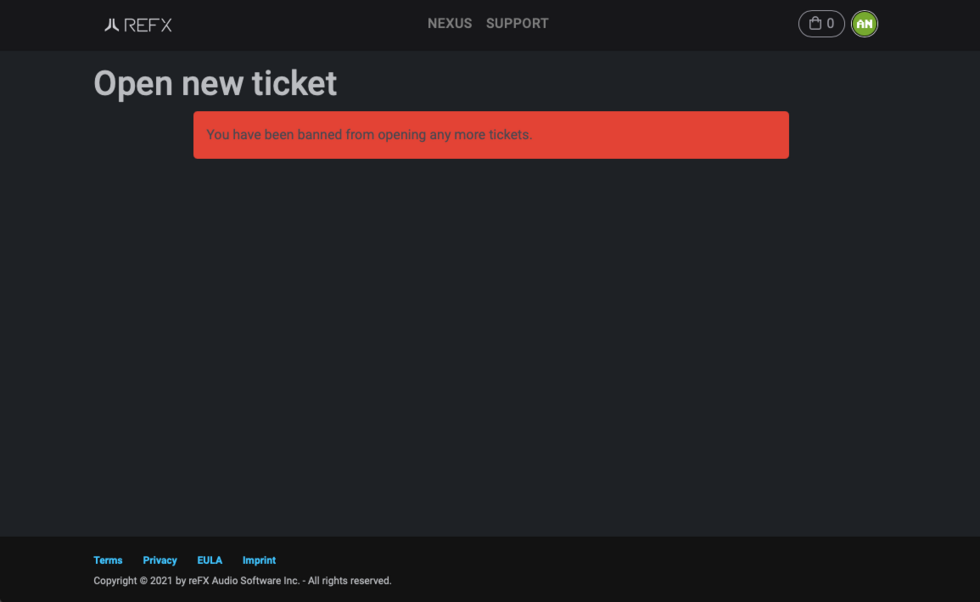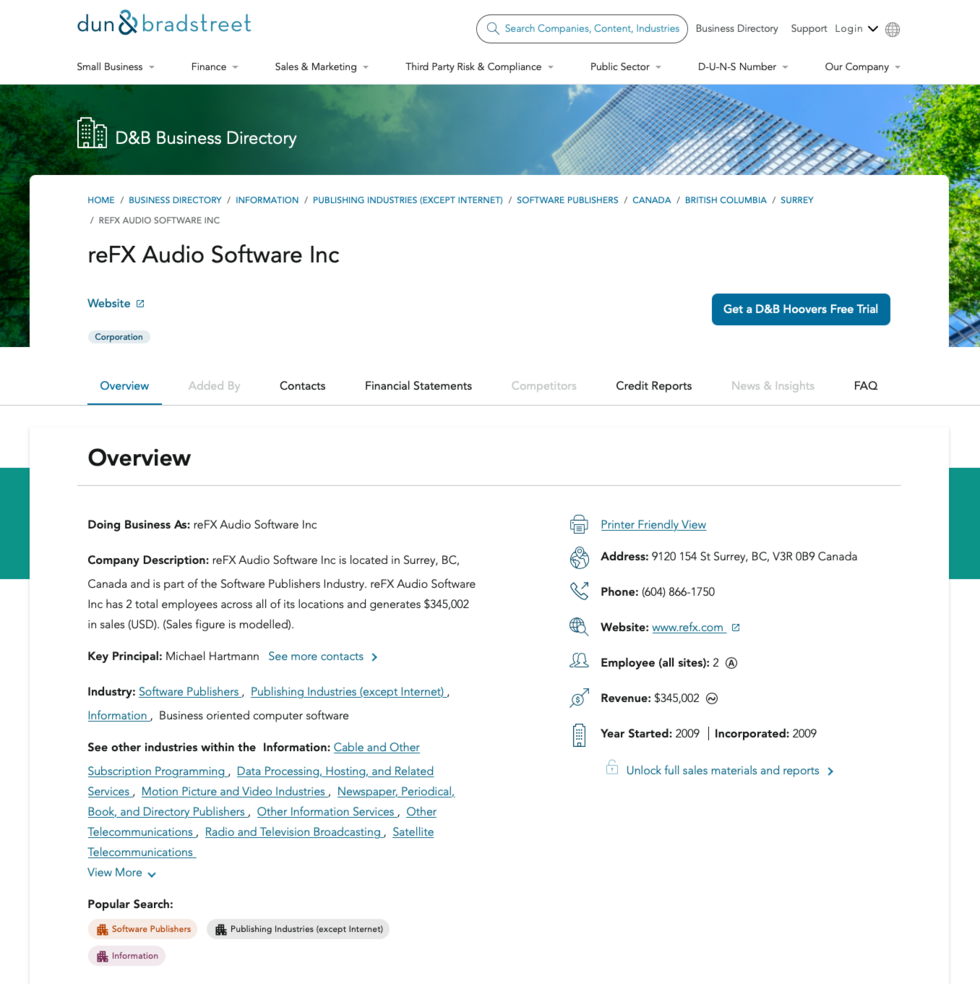
Exploring reFX’s Nexus: A Decade-Long User Review
Dive into my journey with Nexus, the flagship software instrument from reFX Audio Software, and gain insights into the user experience.
Back in 2012, I stumbled upon Nexus, an intriguing software instrument by the Canadian-based reFX Audio Software. Right off the bat, I was captivated by its modern sound capabilities and the comprehensive demos that showcased its potential.
Fast forward to January 2013, I decided to invest in Nexus. Over the subsequent years, I expanded my collection by adding a sound bank, with my most recent addition in 2016. Nexus found its place in various projects of mine, serving faithfully without requiring any manufacturer support.
Facing the e-Licenser Challenge with reFX’s Nexus in 2019
In May 2019, I encountered a major hiccup with my digital audio workstation setup. My e-Licenser, the essential USB dongle safeguarding my purchased licenses, suddenly became unresponsive. Both Steinberg Cubase and Nexus from reFX were rendered unusable.
Fortuitously, I had a backup e-Licenser, anticipating such unforeseen circumstances. My first instinct was to shift my licenses – a process I believed would be straightforward. With Steinberg, the transition was seamless; their support swiftly and efficiently blocked the old e-Licenser and enabled registration on my backup, testament to their customer-centric approach.
Elated, I dived back into Cubase, but to my dismay, reFX’s Nexus remained inaccessible. A logical deduction was that the license still resided on the defunct dongle. Given my positive experience with Steinberg, I assumed procuring assistance from reFX would be equally uncomplicated.
However, my maiden plea for reFX’s aid soon unveiled their service ethos. Let me guide you through my experience, potentially sparing you similar challenges and ensuring your investment is wisely directed.
Two key challenges arose with reFX:
-
e-Licenser Transitioning: Unlike Steinberg, reFX lacked a straightforward method to shift licenses between e-Licensers. Whether this was a technological limitation or a deliberate design choice remains unclear. Regardless, from a customer’s viewpoint, viable solutions seemed absent.
-
Support Accessibility: reFX’s exclusive ticket-based support system posed its own challenges. The absence of a direct email contact was both perplexing and limiting.
The Challenge of Shipping a Defective e-Licenser to reFX in Canada
A key issue I encountered was the directive from reFX support to dispatch the malfunctioning e-Licenser to their Canadian address, where it would undergo assessment to decide the next steps. Some significant concerns arose:
-
Shipping Destination: The provided address was a mere mailbox, without an alternative street address. This lack of a physical address felt rather unprofessional.
-
Shipping Risks and Costs: Mailing an item from Germany to Canada isn’t just time-consuming; it’s also costly. More concerning was the risk of losing my e-Licenser – my tangible proof of ownership – especially during transit or any unforeseen issues with reFX’s handling of the returned item.
-
Valuation Dilemma: The support team’s suggestion to declare a low value for the defective e-Licenser seemed imprudent. Despite its malfunctioning state, it housed licenses worth several hundred dollars, including Steinberg Cubase Pro. Were it to be lost, the financial impact would be considerable, especially given that I was informed I’d need to repurchase.
To add to the irony, the team’s casual approach to my valid concerns over shipping expenses and potential customs duties made the entire experience even more exasperating.
Being Labeled a Potential Thief, Despite a Verified Purchase History
In a particularly frustrating twist, my ticket got unexpectedly closed (with notifications going straight to the spam folder, which I noticed days later). Expressing my irritation about this oversight brought a surprising response from “Michael”, the company’s owner. I was taken aback as he insinuated that I might be attempting to illicitly acquire a license – essentially branding me a potential thief or pirate. Such accusations only served to inflame the situation further.
“Steinberg makes the elicenser and has 100% control over it. If they can disable it on their server, that doesn’t mean it magically stops working. We also have zero evidence to support ANY of your claims, so we have to rely on our policies to protect us from fraudulent claims. We’ve had quite a few over the years.”
— Michael, Support Staff @ reFX Audio Software, Canada
To accuse a customer in such a manner is hardly a display of prudence. Not only is such a claim technically unsound, but it’s also important to consider the potential scale of the purported malfeasance; perhaps just a single copy. Given the vast number of reFX customers, only a minuscule fraction likely face issues with their e-Licensers.
I admit, I voiced my frustration and highlighted the evident lack of customer-centricity. But the ultimate outcome? An unprecedented move by reFX: a total communication blackout and a ban from their support system. Never, in my near half-century on this Earth, have I faced such treatment from any establishment.

Transparent Business Practices: An Expectation, Not an Option
I was puzzled when my efforts to communicate with reFX were met with a PO Box address (reFX Audio Software Inc., PO box 61543 Brookwood, Langley BC V3A 8C8, Canada). With no details about the company’s key personnel, the absence of a sales team, and the lack of a contact form, navigating their website felt akin to dealing with an elusive entity, reminiscent of the vague operations one might associate with a questionable online vendor.
While scouring their End-User-License-Agreement, terms, and privacy policy, I was left none the wiser. The company remains a mystery, concealing its operations behind its brand name. One must question the validity of such documents beyond Canadian borders.

Determined to uncover more, I turned to Dun & Bradstreet, a reputed business directory. Through their listing, I unearthed an address roughly 45 minutes from the PO Box location (reFX Audio Software, 9120 154 St Surex, BC, V3R 0B9 Canada), an elusive phone number, and finally, the names of the stakeholders involved: Michael Hartmann and Elliot Rigets.


It’s disheartening to think such basic information requires external investigation, especially when dealing with a company that, as per Dun & Bradstreet, is modest in both size and revenue. While size and earnings aren’t indicators of quality, the lack of transparency coupled with an unorthodox approach to customer service surely leaves room for skepticism.
Numerous accounts from platforms like Trustpilot, Ableton Forum, and various Reddit threads, here, and here resonate with my sentiments.
Evaluating Customer Service: Expectation vs Reality
One might speculate about the underlying causes behind reFX’s less than stellar customer service. Is it a reflection of the CEO’s ability to balance software development expertise with people management skills? Perhaps the strain of running a small business contributes to heightened stress levels and consequently, diminished patience. Alternatively, the leadership could simply lack a fundamental understanding of the value of customer rapport.
Whatever the cause, the company’s approach appears to be more guarded than generous, particularly towards those who express dissatisfaction.
Factually Speaking: When the software functions as promised, customers receive a product that oscillates between mediocre to above-average in terms of audio quality. Add-ons, in the form of sound packs, enhance this experience. But when issues arise, the hope for timely, courteous, or any form of assistance dims significantly.
Given my personal encounters, I’m left to wonder: Will the next chapter with reFX involve Michael Hartmann or Elliot Rigets escalating matters? Perhaps invalidating my purchased licenses? My past interactions make such an outcome seem plausible.
For me, the conclusion is evident. I have no intention of future dealings with reFX.
Recommendation: I’d advise prospective customers to tread with caution. It’s prudent to engage with vendors who respect and value their clientele, rather than those who seem predisposed to view their customer base with suspicion, likening them to opportunists or pirates.
Addendum
After the initial publication of my article, I was approached by an anonymous source who shared with me an email correspondence that seemingly took place between a reFX customer and Michael Hartmann. The grievances echoed familiar sentiments: malfunctioning e-Licenser and less than satisfactory customer service.
Certain statements, from the perspective of the customer, came across as disheartening. They painted a picture of profound disdain, considerable arrogance, and a glaring absence of respect towards the other participant in the conversation.
Having been privy to this exchange, my sentiments towards Michael Hartmann are now tinged with pity. It appears that he might have endured a slew of unfavorable encounters in his professional journey – instances as severe as receiving death threats (which, regardless of the circumstances presented here, is grossly inappropriate and warrants consequences). These experiences, it seems, may have sculpted the antagonistic figure that many aggrieved customers encounter today.
It might be in his best interest, and that of reFX, to distance himself from direct customer interactions. This serves a dual purpose: firstly, to safeguard his own well-being and secondly, to uphold a certain standard of customer service. There exist myriad avenues for customer support: outsourcing, hiring part-timers, interns, leaning on community help, etc. Arguably, any of these would be more advantageous for reFX than continuing with a strategy that leaves customers feeling underserved.
Note: My assertions stem from my interpretation of events and are expressed as personal opinions, backed by diligent research. Screenshots sourced from reFX.com and Dun & Bradstreet were captured by me on November 10th, 2021. I’ve securely archived the ticket IDs alongside the comprehensive ticket transcripts.
Header Photo by Christian Erfurt on Unsplash






